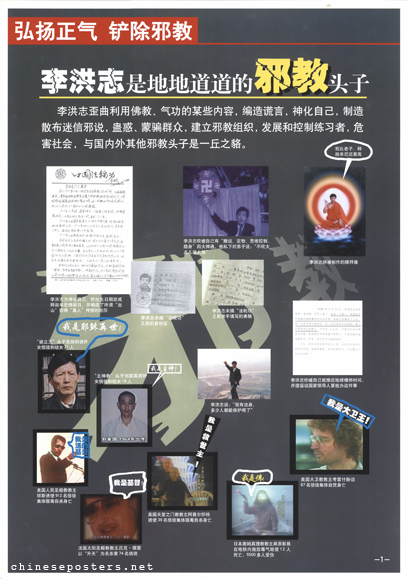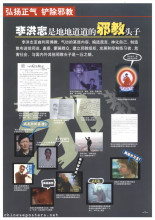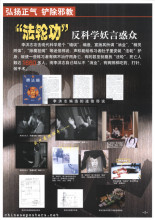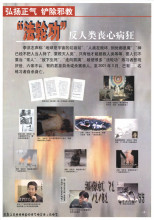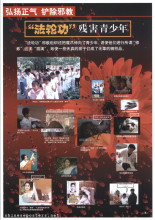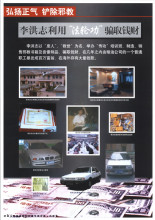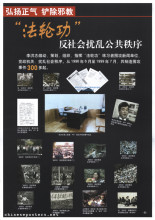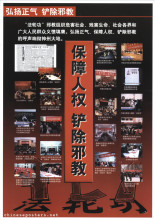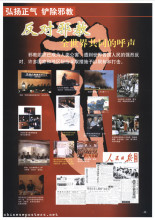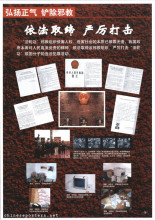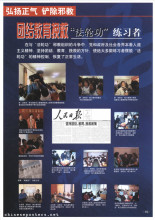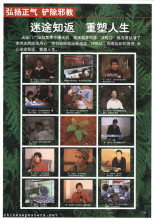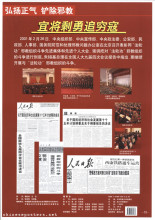Li Hongzhi is an absolute cult leader, 2001
On 26 February 2001, a meeting was convened in the Great Hall of the People by the Central Committee (CC) Organization Department, the CC Propaganda Department, the CC Politics and Law Committee, the Public Security Department, the Ministry of Civil Affairs, the Personnel Departement, the State Council Office of Preventing and Dealing with Cult Issues, intended for all organizations and advanced persons engaged in the struggle against the Falun Gong (法轮功, Practice of the Wheel of the Dharma).
This was a little over a month after the "Tiananmen Square self-immolation incident" (also known as the 1.23 Incident) took place in Tiananmen Square in central Beijing, on the eve of Chinese New Year on 23 January 2001. Tiananmen Square was one of the main venues where Falun Gong practitioners protested their persecution, usually by raising banners or staging peaceful meditation sit-ins. According to government sources, prior to 23 January, a group of seven people [Wang Jindong (王近东), Liu Chunling (刘春玲), Liu Siying (刘思影), Chen Guo (陈果), Hao Huijun (郝惠君), Liu Baorong (刘葆荣), and Liu Yunfang (刘云芳)] had travelled to Beijing from Henan province. Five members of the group set themselves on fire in the square. Liu Chunling reportedly died on the scene. A few months later, state media announced the death of her daughter Liu Siying. Falun Gong sources disputed the accuracy of these portrayals, and claimed that their teachings explicitly forbid violence or suicide.
The state media coverage of the event resulted in increased support for the Party's persecution efforts against Falun Gong, and eroded public sympathy for the group.
James R. Lewis, "A Burning Faith in the Master: Interpreting the 1.23 Incident", Journal of Religion and Violence 6:2 (2018), 172-190
